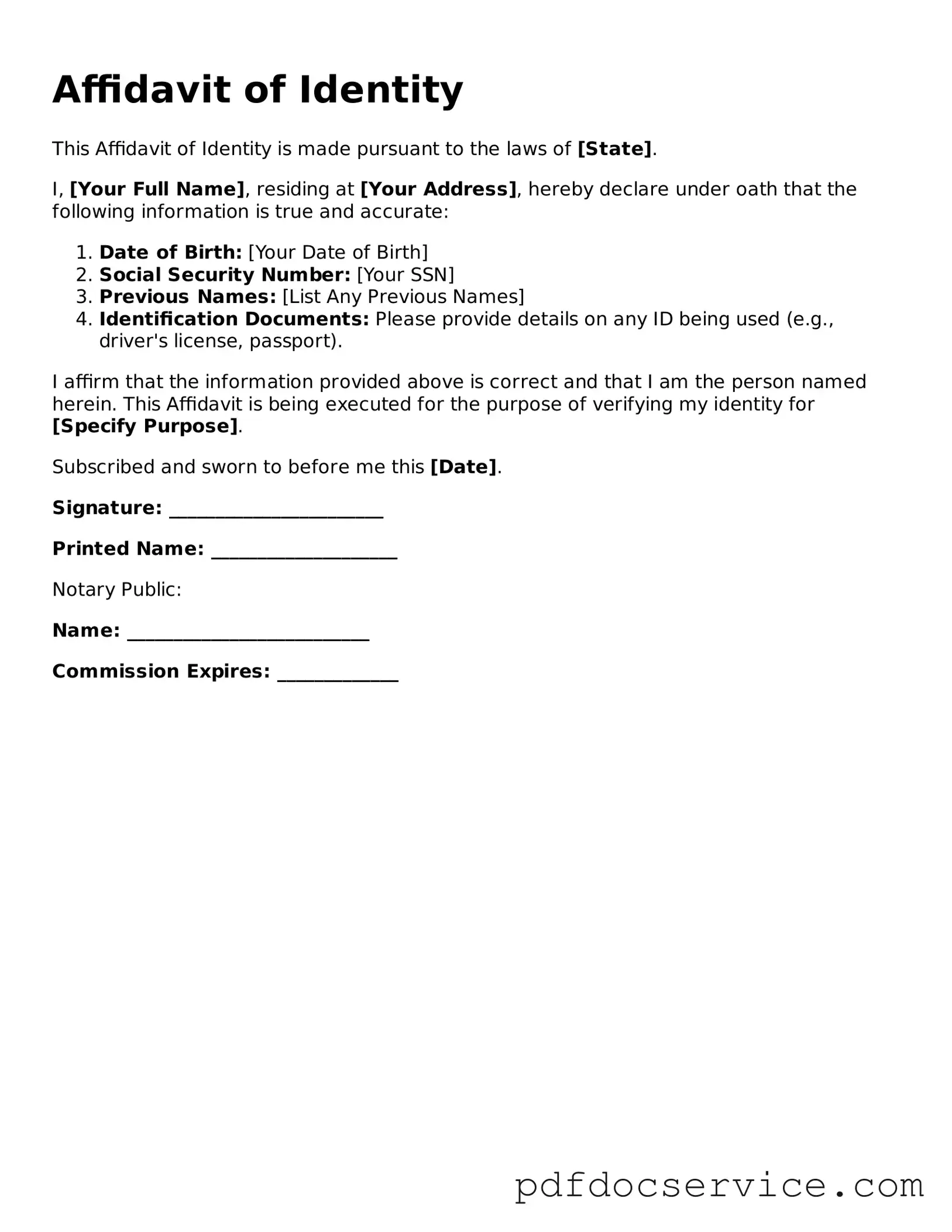What is an Affidavit of Identity?
An Affidavit of Identity is a legal document used to affirm a person's identity. It is often required in situations where an individual needs to verify their identity for legal purposes, such as applying for a passport, opening a bank account, or dealing with certain legal matters. The document typically includes personal information, such as the individual's name, date of birth, and address, and is signed under oath, making it a sworn statement.
Who needs to complete an Affidavit of Identity?
Anyone who needs to confirm their identity for legal or official purposes may need to complete an Affidavit of Identity. Common scenarios include:
-
Applying for government-issued identification, like a driver's license or passport.
-
Opening bank accounts or financial accounts.
-
Participating in legal proceedings where identity verification is required.
In some cases, individuals who have changed their name or have been victims of identity theft may also need to provide this affidavit to establish their true identity.
How do I complete an Affidavit of Identity?
Completing an Affidavit of Identity involves several steps:
-
Gather necessary personal information, including your full name, date of birth, and current address.
-
Obtain the affidavit form, which can often be found online or through legal offices.
-
Fill out the form accurately, ensuring that all information is correct.
-
Sign the affidavit in the presence of a notary public, who will witness your signature and add their own seal to the document.
It's essential to read the affidavit carefully and ensure that you understand its contents before signing.
Do I need a notary to sign my Affidavit of Identity?
Yes, a notary public is typically required to witness the signing of an Affidavit of Identity. The notary's role is to verify your identity and ensure that you are signing the document willingly and without coercion. This step adds an extra layer of authenticity to the affidavit, which can be crucial for its acceptance in legal and official contexts.
What should I do if my Affidavit of Identity is rejected?
If your Affidavit of Identity is rejected, it is important to understand the reasons behind the rejection. Common issues might include:
-
Incomplete or inaccurate information on the form.
-
Failure to have the document notarized.
-
Insufficient proof of identity attached to the affidavit.
To address the situation, review the rejection notice carefully. Make the necessary corrections and resubmit the affidavit, ensuring that all requirements are met. If you continue to face difficulties, consider seeking legal advice for further assistance.

